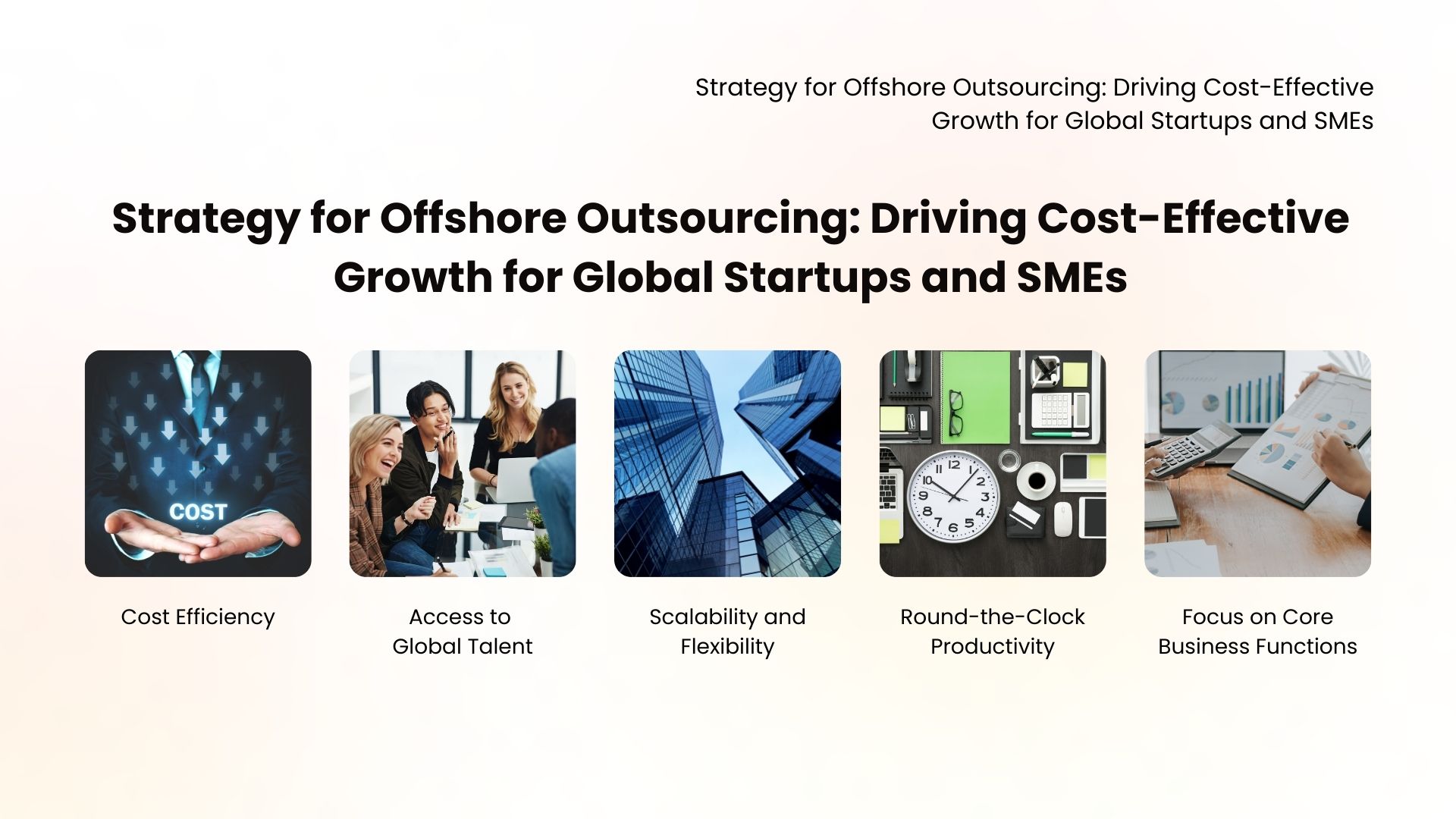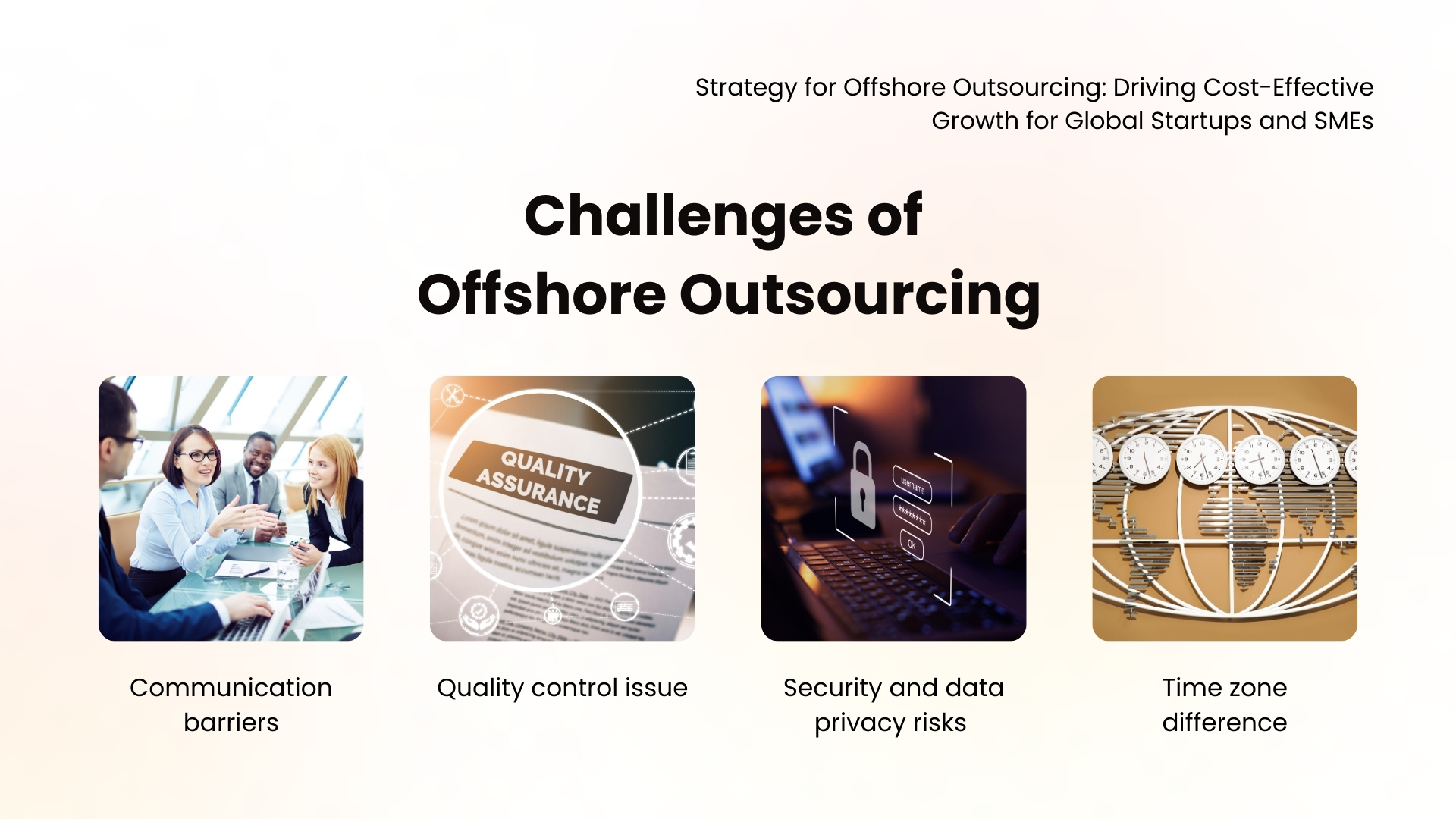Offshore outsourcing has become an essential strategy for businesses looking to optimize costs, scale efficiently, and access global talent. Companies across industries – ranging from IT and customer service to manufacturing – are leveraging offshore outsourcing to stay competitive.
This article explores the strategic approaches, benefits, and challenges of offshore outsourcing while providing insights into how DigiEx Group can help businesses navigate this landscape.


What is Offshore Outsourcing?
Offshore outsourcing is the practice of delegating business functions to external service providers located in different countries. This approach is widely used for:
- Software Development: Hiring remote teams for application and web development.
- IT Services: Cloud computing, cybersecurity, and infrastructure management.
- Customer Support: Offshore call centers and help desks.
- Manufacturing: Production outsourcing for cost efficiency.
With proper strategic planning, offshore outsourcing can yield significant benefits in terms of efficiency, scalability, and cost savings.
Key Benefits of Offshore Outsourcing
1. Cost Efficiency
One of the primary reasons companies opt for offshore outsourcing is cost savings. Labor costs in offshore locations can be 30-60% lower than in high-cost regions such as the US or Western Europe.
This reduction in costs enables businesses to reallocate budgets towards innovation, expansion, and employee development, enhancing overall competitiveness in the market. Moreover, companies can save on infrastructure and operational costs, as outsourcing providers often offer well-established work environments.
2. Access to Global Talent
By outsourcing to countries with a strong talent pool, businesses can tap into a wide range of specialized skills that might be scarce or expensive locally. For example, Vietnam and India have become major hubs for highly skilled software engineers. This access ensures that businesses can leverage top-tier expertise without being restricted by geographical limitations.
Additionally, outsourcing partners often invest in continuous training and development, ensuring their workforce remains updated with the latest industry trends and technological advancements.
3. Scalability and Flexibility
Outsourcing enables companies to scale operations up or down based on business needs. This is particularly useful for startups and enterprises looking to expand quickly without significant capital investment. Companies can rapidly adapt to market demands, launch new projects, or enter new markets without the long lead times typically associated with in-house expansion.
4. Round-the-Clock Productivity
With teams operating in different time zones, businesses can run operations 24/7, improving turnaround times and service availability. This continuous workflow ensures that tasks are completed overnight, leading to faster product development cycles, quicker issue resolution, and enhanced customer support, all of which contribute to improved client satisfaction and retention.
5. Focus on Core Business Functions
By outsourcing non-core activities (e.g., IT support, HR, and data entry), companies can focus on strategic growth initiatives rather than getting bogged down by operational tasks. This allows leadership teams to prioritize innovation, customer relationships, and long-term business strategies, fostering greater agility and competitiveness.

Challenges of Offshore Outsourcing
1. Communication Barriers
Cultural and language differences can create challenges in collaboration. Companies must implement clear communication protocols and use collaboration tools like Slack, Microsoft Teams, and Zoom to bridge the gap.
2. Quality Control Issues
Maintaining consistent service quality across different locations can be challenging. Businesses should establish strict quality assurance standards and regularly review performance metrics.
3. Security and Data Privacy Risks
Offshoring may involve sharing sensitive business data, which increases risks related to cybersecurity and regulatory compliance (ISO 27001, GDPR, etc.). Companies must implement robust security measures to protect intellectual property and customer information.
4. Time Zone Differences
While offshore outsourcing provides round-the-clock productivity, managing real-time collaboration can be tricky. Solutions include scheduling overlap hours and using automated workflow management tools.

Choosing the Right Offshore Outsourcing Model
1. Offshore vs. Nearshore vs. Onshore Outsourcing
- Offshore Outsourcing: Partnering with firms in distant countries for cost-effective solutions. Best for cost-sensitive projects.
- Nearshore Outsourcing: Working with providers in neighboring countries with minimal time zone differences. Best for balancing cost and communication.
- Onshore Outsourcing: Outsourcing within the same country, ensuring compliance but at a higher cost. Best for regulatory-heavy industries.
2. Types of Offshore Outsourcing
A. IT and Software Development Outsourcing
- Web and mobile app development
- Cloud computing and DevOps solutions
- AI-driven automation services
B. Business Process Outsourcing (BPO)
- Customer support (call centers, live chat, email)
- HR and payroll management
- Finance and accounting services
C. Knowledge Process Outsourcing (KPO)
- Data analytics and research
- Legal and compliance services
- Market Intelligence
D. Engineering and Creative Services Outsourcing
- CAD modeling and product design
- Video production and content marketing
- UX/UI design
Best Practices for Successful Offshore Outsourcing
1. Define Clear Objectives
Establish KPIs, project milestones, and success criteria to ensure alignment with business goals. Having well-defined goals ensures both parties have a common understanding of deliverables, reducing ambiguity and improving collaboration. Organizations should also document these objectives formally in contracts to avoid misalignment.
2. Choose the Right Partner
Vet offshore partners based on their technical expertise, compliance records, and client reviews (e.g., Clutch and G2 ratings). Conducting pilot projects or trial engagements before entering long-term contracts can provide a clearer picture of a partner’s capabilities and reliability.
3. Invest in Communication and Collaboration Tools
Use project management platforms like Asana, Jira, or Monday.com to streamline workflows. Regular check-ins and progress updates should be scheduled to maintain transparency and ensure that all stakeholders remain aligned throughout the project lifecycle.
4. Prioritize Security and Compliance
Ensure compliance with industry regulations such as ISO 27001, GDPR, and HIPAA when outsourcing IT and data-related services. Additionally, businesses should implement strong cybersecurity protocols such as encrypted communication channels and multi-factor authentication to mitigate security risks.
5. Conduct Regular Performance Audits
Monitor performance through monthly reviews, performance analytics, and client feedback loops to ensure high-quality service delivery. Establishing a feedback mechanism allows for continuous improvement and helps address potential issues before they escalate.
The bottom line
Offshore outsourcing is a strategic approach that enables businesses to reduce costs, access global expertise, and scale operations efficiently. However, to maximize benefits, companies must carefully choose their outsourcing model, implement robust communication strategies, and enforce quality control measures.
About Innovators Hub Asia
Innovators Hub Asia is an innovative technology system that combines 2,000 top innovators and tech talents and cutting-edge technology to deliver AI-driven solutions tailored to the business’s unique challenges. It aims to revolutionize business operations and accelerate growth through a wide range of services, including aiLabs, TalentCloud, Tech Venture Builder, and Co-Innovation Builder.






